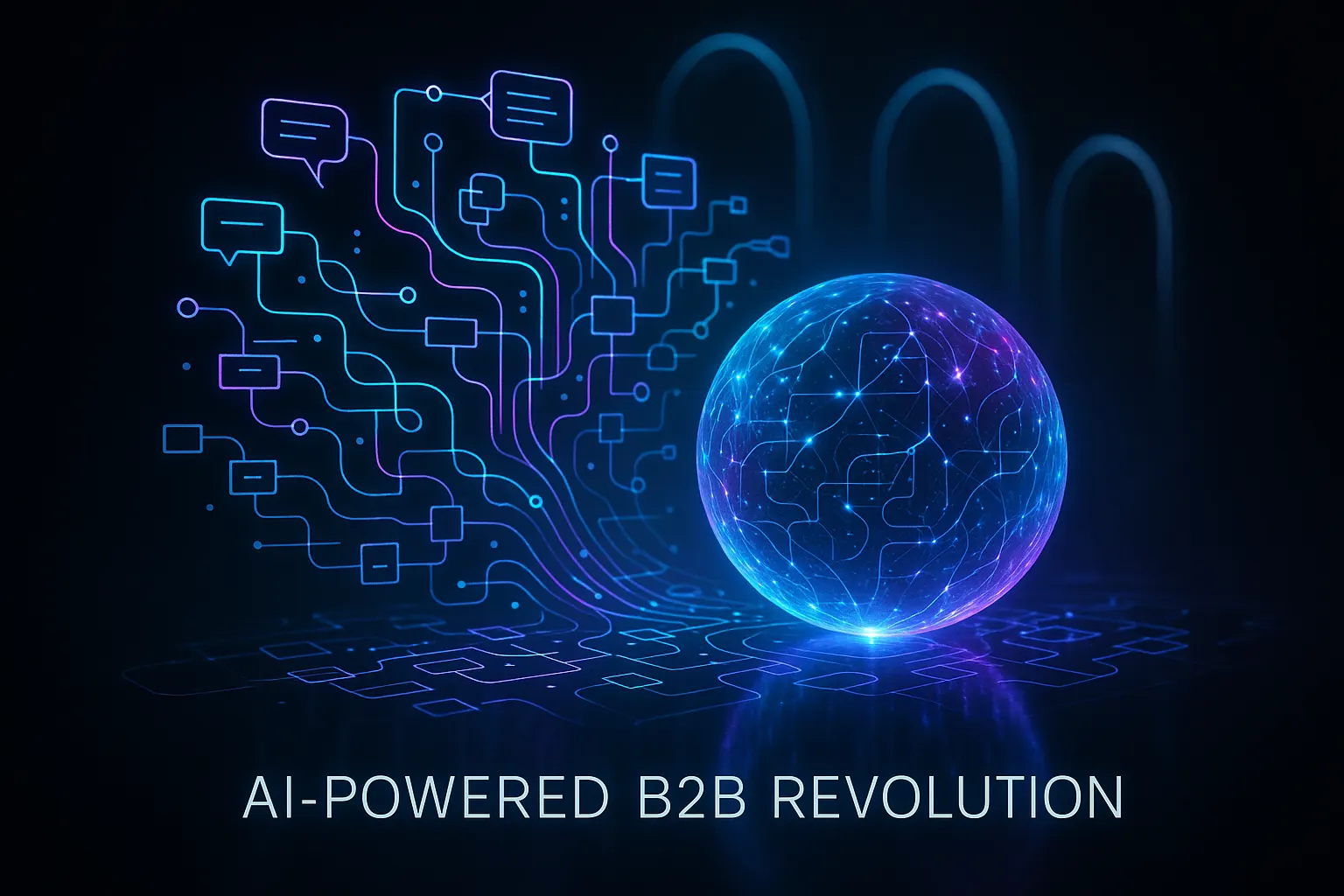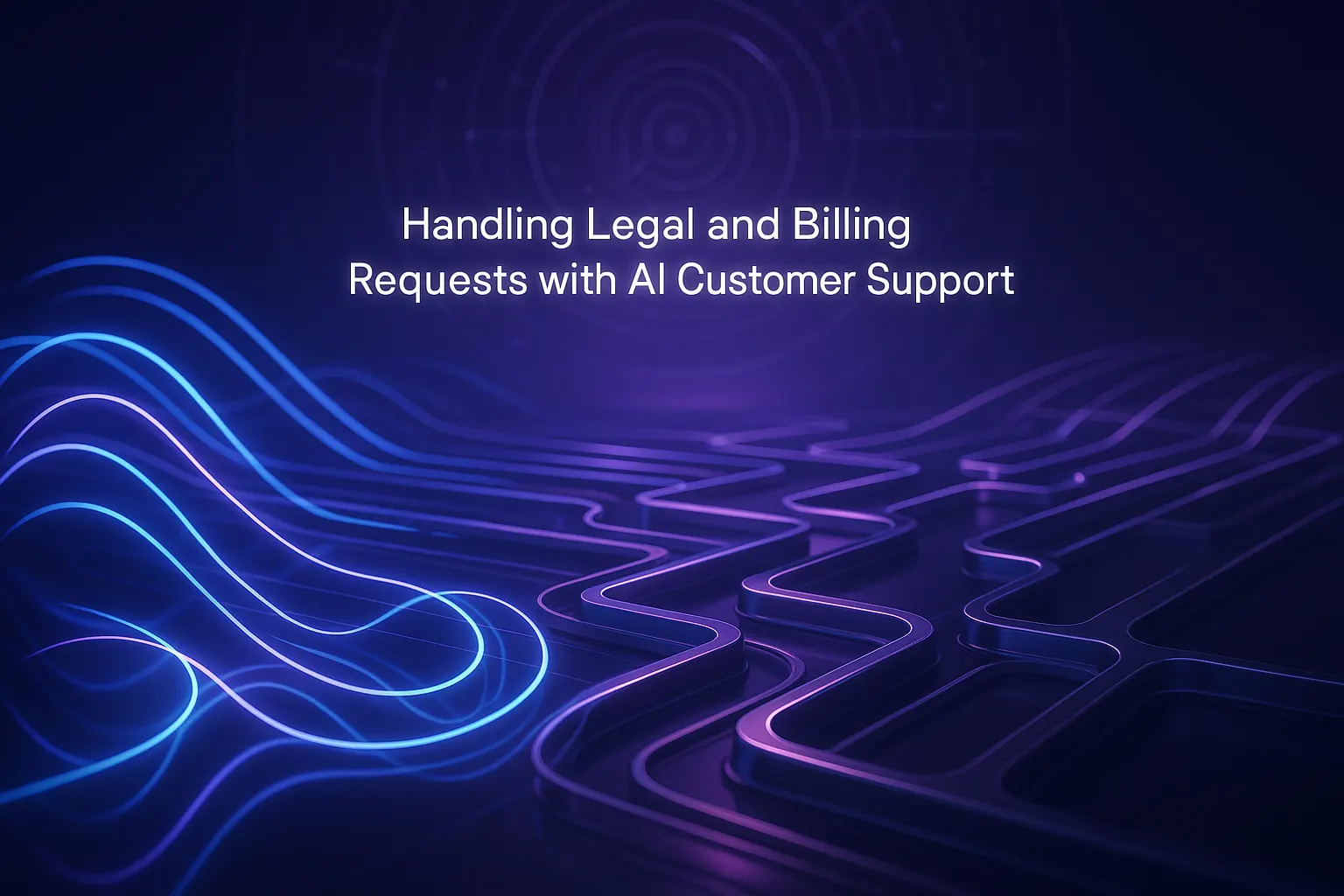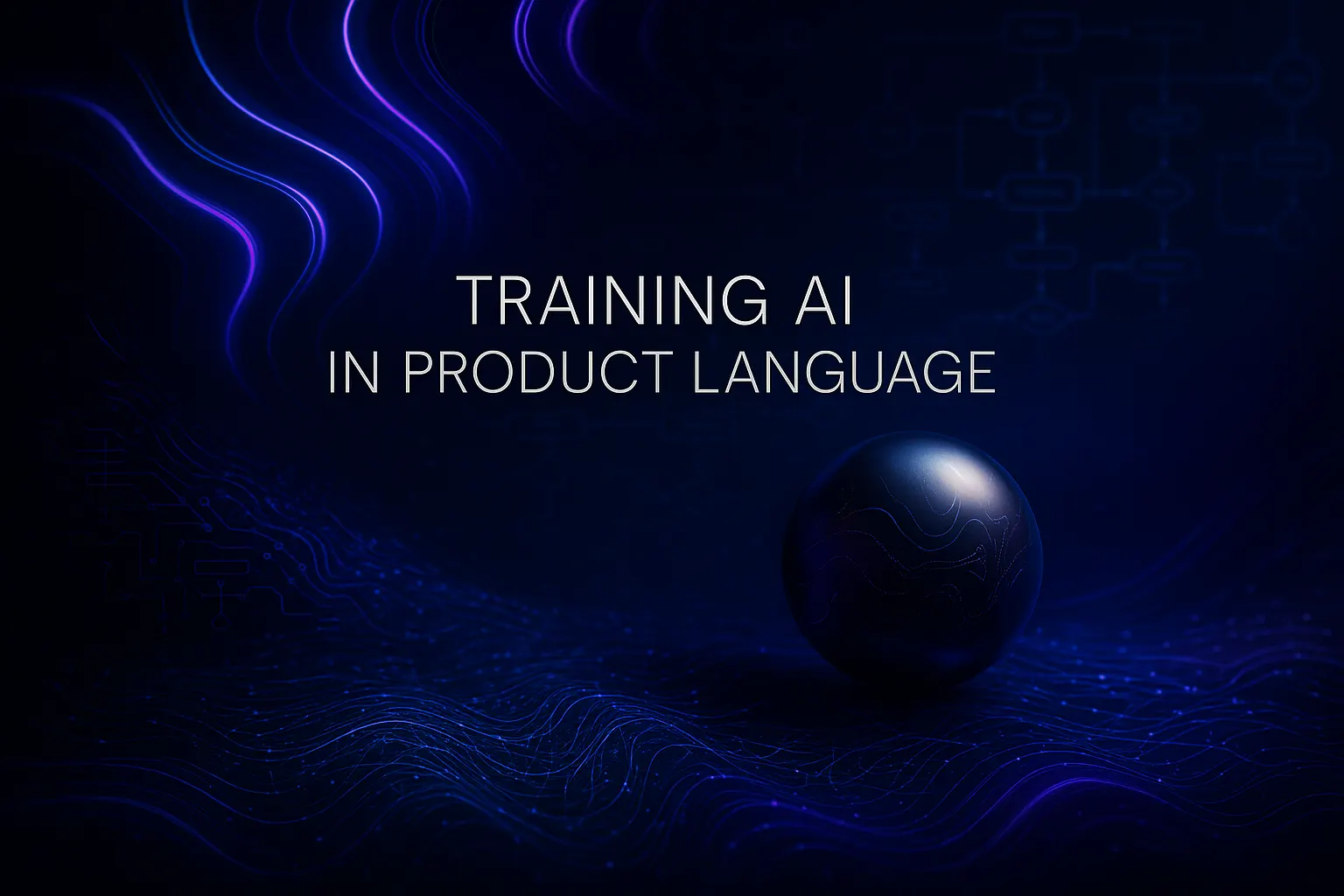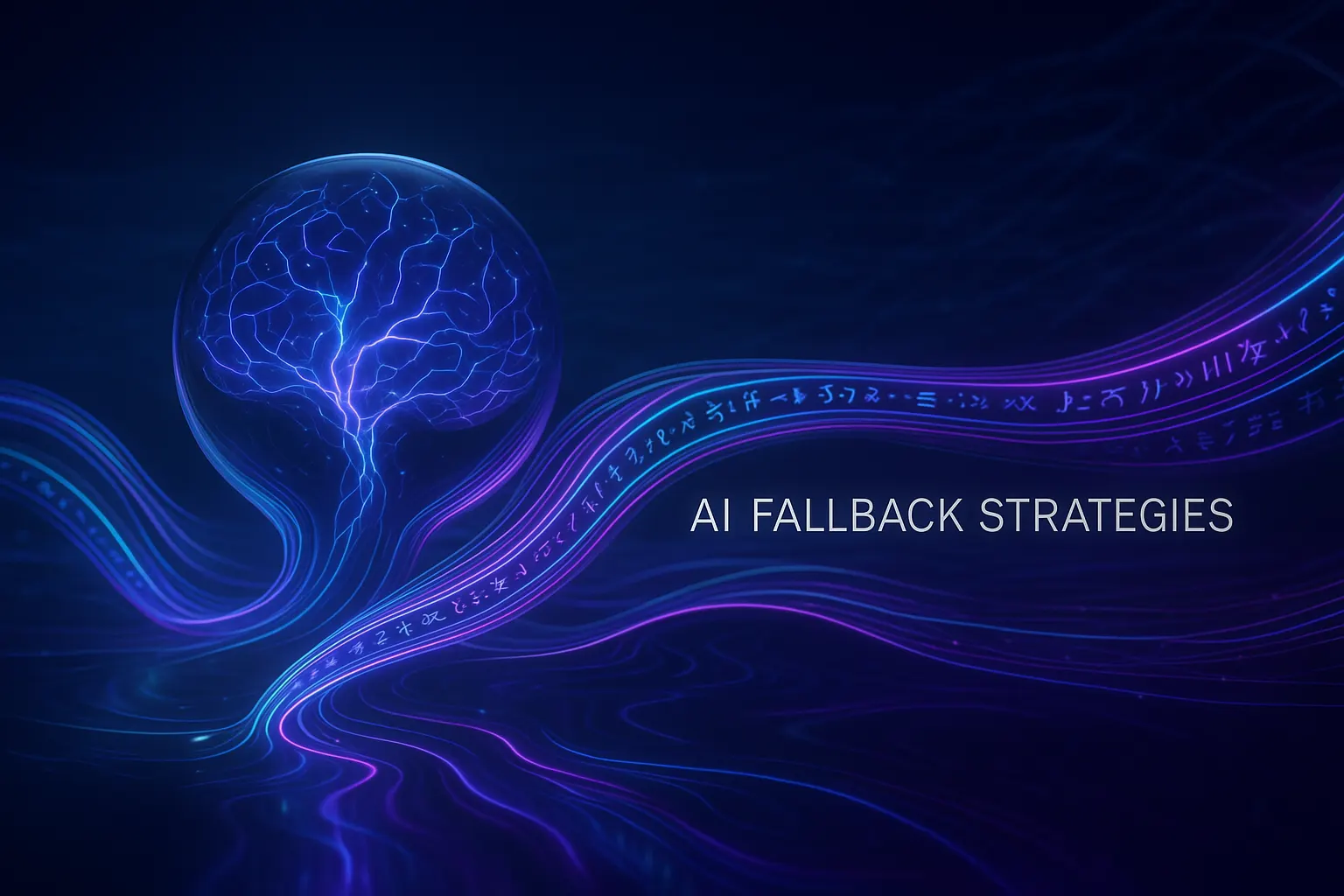Top 7 AI Customer Services for B2B SAAS Startups
As your support queue grows faster than your team, B2B SaaS buyers demand quick, accurate replies across all channels. An effective AI platform maintains high service quality while supporting business scalability. This shortlist is tailored for B2B SaaS needs, prioritizing features like account context, secure workflows, and smooth integrations. All information reflects the state of the market as of October 10, 2025.
Looking for a realistic overview before making your choice? Check out this resource on common B2B SaaS support requests to help you align tools with real-world needs.
Skip the Hype: Evaluate Using These Essentials
- Integration Fit: Ensure the AI platform supports seamless integration with your business’s CRM, help desk, email, and chat applications.
- Accuracy and Control: Configure outputs based on your own knowledge base and internal policies.
- Tone Consistency: Maintain your brand’s voice across teams, regions, and communication channels.
- Agent Workflow: Enhance productivity by enabling agents to draft, summarize, classify, and translate within a unified environment.
- Analytics That Matter: Track metrics like coverage, containment, time to first reply, and CSAT for actionable insights.
- Privacy and Security: Confirm robust data management capabilities, custom retention options, access controls, and audit trails.
- Scalability and Cost: Accurately forecast usage, avoid unexpected costs, and build a plan for future growth.
1) Zendesk AI
Zendesk AI operates within Zendesk Support and Suite, adding intelligence while allowing agents to stay in their familiar workspace.
- Strengths: Native triage capabilities, intent detection, and smart macro suggestions.
- Knowledge Use: Converts existing help articles into reply and summary suggestions.
- Trade‑offs: Most valuable if you already use Zendesk as your core support platform.
- Best for: Established teams wanting reliable, low-friction adoption.
2) Typewise
Typewise embeds AI writing assistance into support and success workflows, seamlessly connecting with CRM, email, and chat tools.
- Strengths: Elevates grammar, clarity, and tone uniformity across messages at scale.
- Workflow Fit: Drafts responses, adapts style, and preserves business context.
- Privacy Stance: Enterprise-grade data handling and privacy practices.
- Trade‑offs: Designed to augment, not replace, your current ticketing system.
- Best for: Teams prioritizing better, faster communication without tool switching.
3) Intercom Fin
Fin is Intercom’s AI agent for Messenger and Inbox, targeting efficient resolution of common questions and intelligent triage for others.
- Strengths: Seamless Messenger experience and effective handoffs to human agents.
- Knowledge Use: Delivers answers based on your documentation, complete with citations.
- Trade‑offs: Most effective when used within the Intercom ecosystem.
- Best for: Product-led teams already invested in Intercom.
4) Salesforce Einstein for Service
Einstein brings AI-powered functionality throughout Salesforce Service Cloud, improving reply accuracy, case summarization, and automating workflows.
- Strengths: Deep Salesforce integration and powerful workflow automations.
- Knowledge Use: Generates responses anchored in your Salesforce data and documentation.
- Trade‑offs: Implementation can be complex for lean teams.
- Best for: Organizations already invested in Salesforce.
5) Freshdesk Freddy AI
Freddy AI brings automation and intelligence to Freshdesk, supporting ticketing, self‑service flows, bots, routing, and reply suggestions.
- Strengths: Rapid deployment and comprehensive feature set for SMBs.
- Knowledge Use: Leverages your help articles to generate suggested answers.
- Trade‑offs: Delivers best value within Freshdesk; changing platforms may require extra effort.
- Best for: Cost-conscious teams seeking simple administration.
6) Ada
Ada offers a no-code AI chat solution for web and messaging, focused on self-service containment and guided flows.
- Strengths: Strong deflection rates across channels and languages.
- Knowledge Use: Orchestrates diverse content and APIs for richer, multi-step answers.
- Trade‑offs: Implementation might take longer due to the expansive capabilities of the tool, but delivers strong functionality and adaptability.
- Best for: Product-led growth teams with high self-serve traffic.
7) Forethought
Forethought centers on AI-driven search and case resolution, surfacing the right answer at the right time for each query.
- Strengths: Advanced intent detection and cross-source knowledge retrieval.
- Workflow Fit: Prebuilt connectors for all leading help desk platforms.
- Trade‑offs: Some features might overlap with existing native options in your stack.
- Best for: High-volume support teams that need precision in knowledge surfacing.
Quick Matches by Startup Stage
- Seed to Series A: Typewise for writing quality, with Intercom or Freshdesk for broader support capabilities.
- Series A to B: Zendesk AI or Intercom Fin, provided routing processes are clear.
- Series B and Beyond: Salesforce Einstein or Ada for advanced process orchestration and scaling.
- High-Volume Search Pain: Forethought to optimize first-contact resolution rates.
Methodology, in One Minute
We evaluated solutions for B2B SaaS teams at various growth stages, prioritizing workflow integration, data security, and measurable business outcomes. Our analysis incorporated public product documentation, current user reviews, and direct scenario tests based on real SaaS support challenges like account updates and billing conflicts. This list was last reviewed and updated on October 10, 2025.
Final Take: Choose Depth That Matches Your Needs
The ideal platform depends on your technology stack, company stage, and team expertise. Keep agents using familiar tools to minimize friction and ensure every response is backed by your own knowledge and policy framework. Track those metrics that matter most to executives and the board.
If you’re seeking an AI platform that seamlessly integrates with your existing CRM, email, and chat systems, products like Typewise could be a strong consideration. Want to see it in action? Bring two real tickets and start a hands-on trial, the difference will be clear.
FAQ
Which AI customer service is best for startups using multiple platforms?
If your startup leverages multiple platforms, ensuring seamless integration is crucial. Typewise is an option to consider as it connects with CRM, email, and chat tools, enhancing communication quality without requiring a platform overhaul.
Is AI integration beneficial for small support teams?
For small teams, AI can enhance efficiency by automating routine tasks and maintaining consistency in responses. However, the right fit depends on how smoothly the AI integrates into your existing workflows.
Are there risks in using AI for customer service in terms of data security?
AI platforms handle significant amounts of sensitive data, so robust privacy and security features are non-negotiable. Without these, your business risks data breaches and compliance violations, which can severely damage your reputation and legal standing.
Can AI really replace human agents in customer support?
AI is unlikely to replace the nuanced human touch needed for complex issues. While it excels at handling repetitive queries and boosting efficiency, human agents remain crucial for empathetic and intricate client interactions.
What factors should determine our choice of AI platform?
Your choice of AI platform should hinge on integration compatibility, scalability, and data privacy features. Ignoring these can lead to interrupted workflows and heightened security vulnerabilities.
How to measure the success of an AI implementation?
Success metrics should go beyond cost-saving to include improvements in response time, customer satisfaction, and accuracy. Relying solely on quantitative savings can obscure the real impact on service quality and customer loyalty.
What are potential pitfalls of choosing the wrong AI solution?
Choosing the wrong AI solution can lead to wasted resources, frustrated staff, and unsatisfactory customer interactions. Ensure the features align with your business needs and existing tech infrastructure to mitigate these risks.
How do AI tools maintain a brand’s voice consistently?
AI platforms use configurable outputs tied to your knowledge base and policies to align with your brand voice. Without this critical setup, you risk inconsistent messaging that can undermine brand trust and customer relationships.






